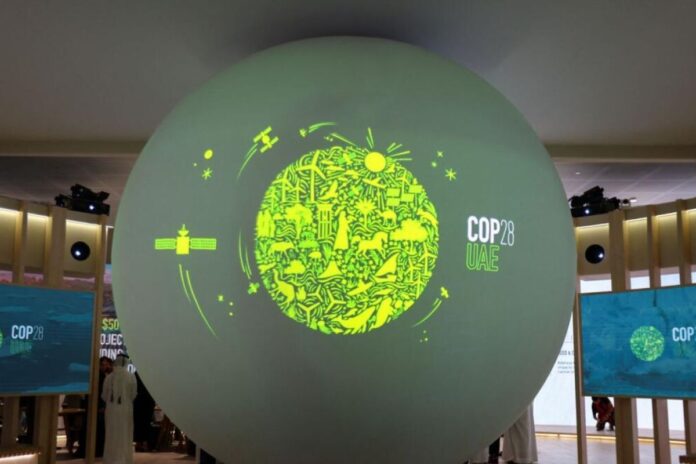The COP28 UAE Presidency has launched its Water Agenda during World Water Week in Stockholm, which took place from 20th to 24th August.
COP28 announced its top priority areas, which include conserving and restoring freshwater ecosystems, enhancing urban water resilience, and bolstering water-resilient food systems.
Furthermore, the COP28 Presidency announced a partnership with the Netherlands and Tajikistan to serve as COP28 Water Champions.
This partnership aims to build upon outcomes and momentum from the UN 2023 Water Conference held in March, which was co-hosted by the Netherlands and Tajikistan, and resulted in the Water Action Agenda.
COP28 aims to give unprecedented attention to water risks and opportunities across the agenda, from agriculture to disaster prevention.
This partnership unites the COP28 Presidency, Tajikistan, and the Netherlands to deliver water policy, technology, and financing results at COP28.
Support from the Netherlands and Tajikistan is essential to ensuring progress and commitments from the UN Water Conference are driven forward.
Razan Al Mubarak, UN Climate Change High-Level Champion for COP28, spoke on the launch of the Water Agenda and partnership, saying,
“Climate change profoundly affects water through flooding, droughts, and sea level rises, impacting homes, ecosystems, and livelihoods. Yet water is not only essential for human survival, health, and food systems, but it’s also fundamental to nature’s balance and the flourishing of biodiversity. With the COP28 Water Agenda, in collaboration with the Netherlands and Tajikistan, we seek to bridge the insights from the UN Water Conference with the climate community, amplifying our adaptation and mitigation efforts.”
Tajik Minister of Economic Development and Trade, Zavqi Zavqizoda, welcomed the partnership and expressed his commitment to co-lead COP28’s Water Agenda.
“I am pleased that Tajikistan and the Netherlands have recently been invited by the UAE to co-lead the Water Agenda at COP28. We are honoured to have this great role and express our strong commitments to work hard to bring water on the top of the climate agenda, since water plays a critical role both in terms of climate adaptation and mitigation and thus greatly contributes to achieving climate resilience,”
he said.
René van Hell, Ambassador for Sustainable Development, Ministry of Foreign Affairs, Kingdom of the Netherlands, also stated,
“We need collective action on water and climate now. As co-host of the UN 2023 Water Conference, we firmly believe that the Water Action Agenda commitments, the pathways of change of the Global Commission on the Economics of Water, and other initiatives are the backbone for the realisation of our goals. Our cooperation will support that, from New York to Dubai, and from Dubai to the world. Tangible outcomes on water and climate at COP28 are essential. There’s no time to waste. We have to act, all together, from public to private sector leaders. And we will.”
This collaboration will help put nature, people, lives and livelihoods at the heart of climate action.
Stuart Orr, Freshwater Practice Leader, WWF International, said,
“We welcome the partnership with the COP28 Presidency to restore 30 percent of degraded freshwater ecosystems by 2030, leveraging the Freshwater Challenge. Rivers and wetlands are among our greatest allies in adapting to the climate crisis and need urgent attention and investment that benefits not only nature but also people across the world.”
The UAE and Brazil will also co-host the first UNFCCC high-level dialogue on building water resilience in food systems at COP28, bringing together ministers, the private sector, international organisations, and civil society to assess water and food resilience within National Determined Contributions (NDCs) and National Action Plans (NAPs).
It will take place on Food, Agriculture and Water Day during COP28’s two-week thematic programme.
The first day of its kind, it will focus on innovation investment, regenerative agriculture, and national transformation pathways, underpinned by financing mechanisms. Water programming will look at freshwater restoration and conservation, infrastructure for urban water resilience, and integrated governance and management of water-food systems.
Billions of people worldwide are now facing severe droughts, floods, and water contamination due to climate change, further undermining food security, community cohesion, and economic development. These climate impacts worsen existing challenges around clean drinking water access and sanitation.
News Source: Emirates News Agency
